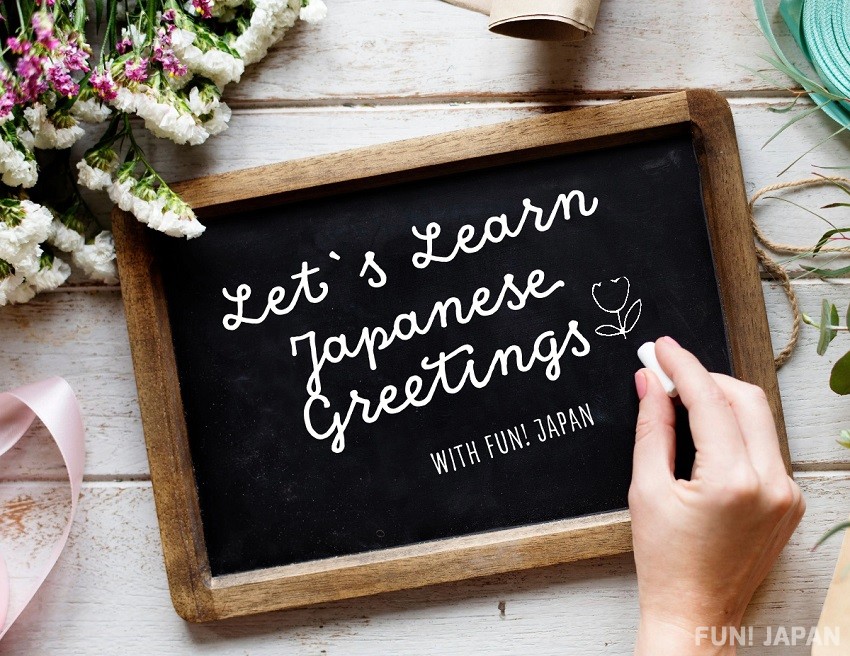
No matter where you live, greetings are essential for daily communication with other people. The same is true in Japan. Whether you plan to live, study, or travel in Japan, it is necessary to understand the appropriate greetings in Japanese.
Therefore, in this article, the FUN! JAPAN editorial team will introduce basic Japanese greetings that can be used in various situations. And if you have the opportunity to interact with Japanese people, try using these greetings.
"Otanjoubi omedetou gozaimasu" - Happy Birthday

In Japan, it is important to express heartfelt words and feelings of gratitude on celebratory occasions.
However, there was originally no custom of celebrating birthdays. In foreign countries, birthdays are considered a day to celebrate the birth of God. It has a strong religious connotation, like "Christmas," which celebrates the birth of Jesus Christ.
The custom of celebrating birthdays as we do now in Japan was established after the enforcement of the "Law on How to Count Age" in Showa 25.
Japanese Phrases for Celebrating Birthdays & Casual and Polite Ways to Say It
Depending on who you're saying it to and the situation, there are casual and polite ways to say birthday phrases in Japanese.
- お誕生日おめでとう 。 (Otanjoubi omedetou→A casual phrase said among friends, or from parents to children.)
- お誕生日おめでとうございます。 (Otanjoubi omedetou gozaimasu →Polite language, phrase for sending a birthday card)
- おめでとう! (Omedetou →Casual, phrase said to close friends, siblings, family)
Phrases to Send Along with "Happy Birthday" Greetings
In Japan, it has been a tradition for a long time to send greeting cards and letters by mail. The following phrases are often used when sending birthday cards.
- "素晴らしい1年になりますように!/ Subarashii ichinen ni narimasu you ni" → This carries the wish for the coming year to be a wonderful one.
- "健康で幸せな1年をお過ごしください!/ Kenko de shiawasena ichinen wo osugoshi kudasai" → This carries the wish for the coming year to be safe, happy, and healthy.
- "心から幸せを願っています!/ Kokoro kara shiawase wo negatte imasu" → This carries the wish for happiness from the bottom of the heart.
"Itadakimasu" - Let's eat
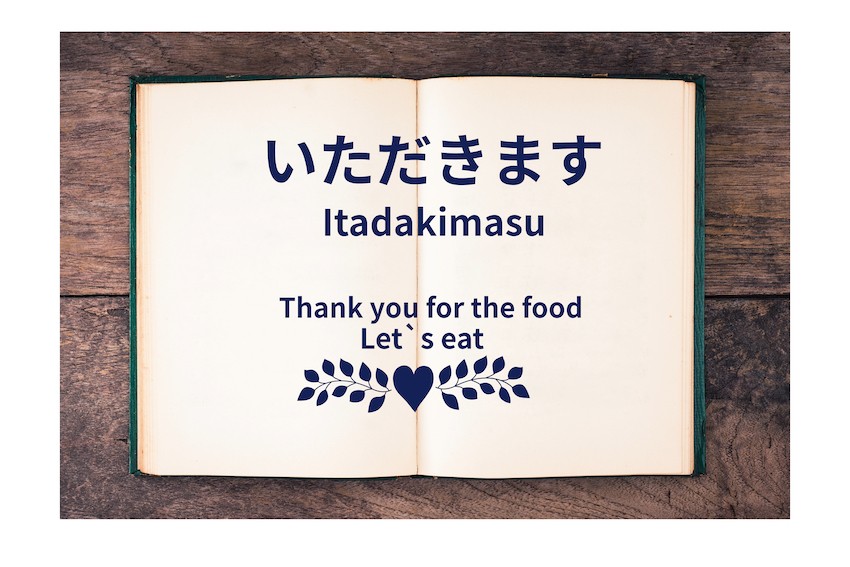
"Itadakimasu" is deeply rooted in Japanese etiquette and culture, and is cherished as a way to show manners during meals and respect for others.
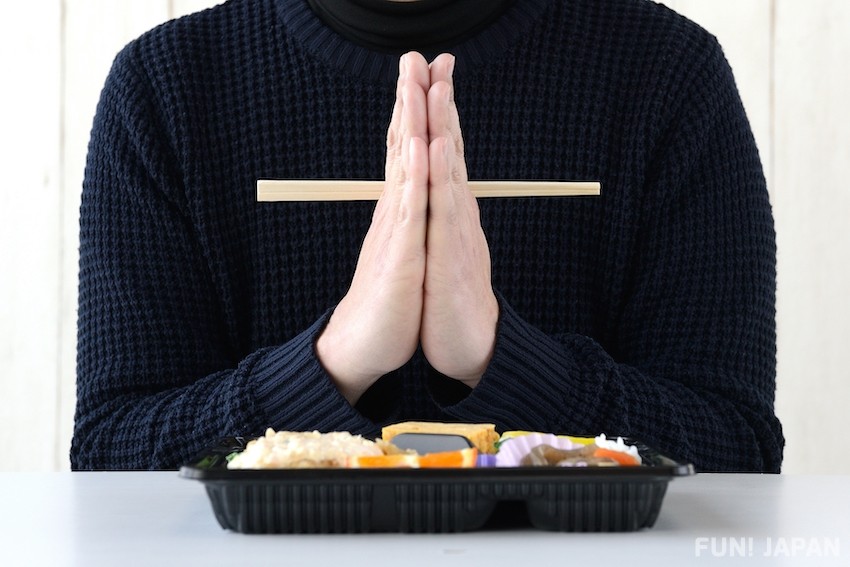
"Itadakimasu" is a common phrase said before starting a meal in Japanese, expressing gratitude before a meal. This phrase is a humble expression *1 for receiving food, and is said to show gratitude to the gods and the other party. This expression is very important in Japanese culture and is used as part of expressing gratitude to others and nature during meals.
The way to do it is to say "Itadakimasu" before sitting at the table or before the meal is served, expressing gratitude before starting the meal.
Humble expression *1: Humble language is one of the honorifics, and it is a word that shows respect to the other party or the person in the conversation by making a humble expression for what the speaker judges to be on his or her side.
"Gochisousama" - Thank you for the food
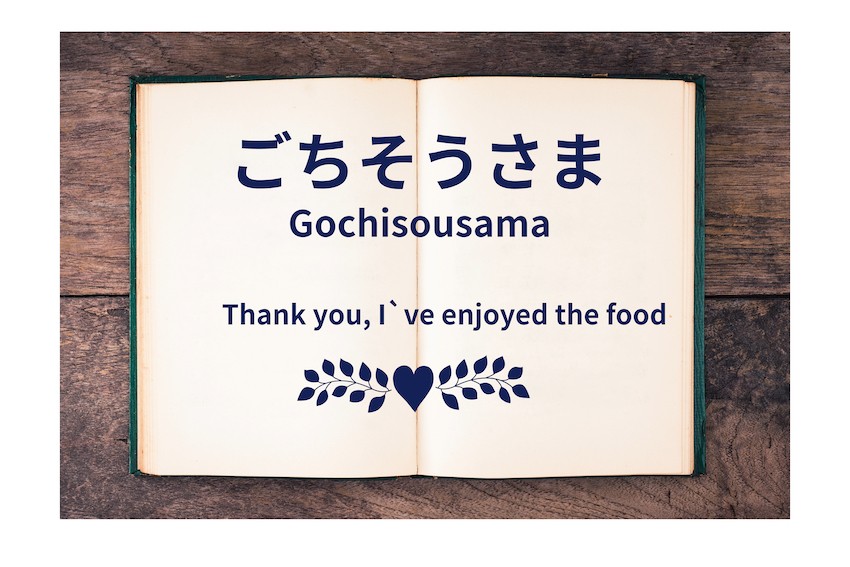
"Gochisousama" is the opposite of "itadakimasu" and is said at the end of a meal. In kanji, it is written as "御馳走様". In the past, there were no refrigerators or supermarkets as we have today, so gathering food ingredients was a difficult task. The kanji "馳走" means to run around, representing the effort made to prepare and serve a meal.
Eventually, the polite term "御馳走" came to include the meaning of entertaining, and also came to refer to luxurious dishes.
There are also various ways to express "gochisousama". These include "ご馳走様" (gochisousama), "ご馳走様です" (gochisousama desu) and "ご馳走様でした" (gochisousama deshita).
"ご馳走様" (gochisousama) is used in general households. At the dining table, when the family is gathered for a meal, it is said at the end of the meal to express gratitude to the person who prepared the food. "ご馳走様です" (gochisousama desu) is often used before eating, to express gratitude to the person who provided the meal. It is also used when someone treats you to a meal.
"ご馳走様でした" (gochisousama deshita) is often used after finishing a meal, expressing gratitude to the person who provided the meal. It is also used when someone treats you to a meal.
Both expressions are honorifics, words that show respect to the other person.
The response to "Gochisousama" is "お粗末様" (Osomatsusama). This is a humble expression for what was provided, implying "It wasn't much, I'm sorry".
"Tadaima" - I'm home
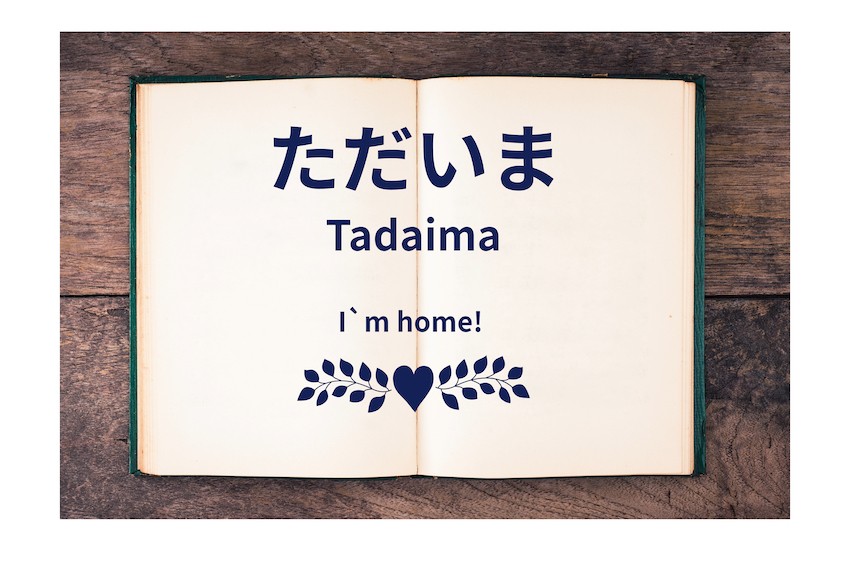
"ただいま" (Tadaima) and "おかえり/おかえりなさい" (Okaeri/Okaerinasai) are expressions often used in daily communication with close relations such as family and friends in Japanese. Below, we explain the meaning and usage of each.
"ただいま" (Tadaima) is an expression used when you return home.
Example sentence:
- ただいま、学校から帰ってきたよ (Tadaima, gakkou kara kaette kita yo.) - I just got back from school.
"Okaerinasai" - Welcome back home
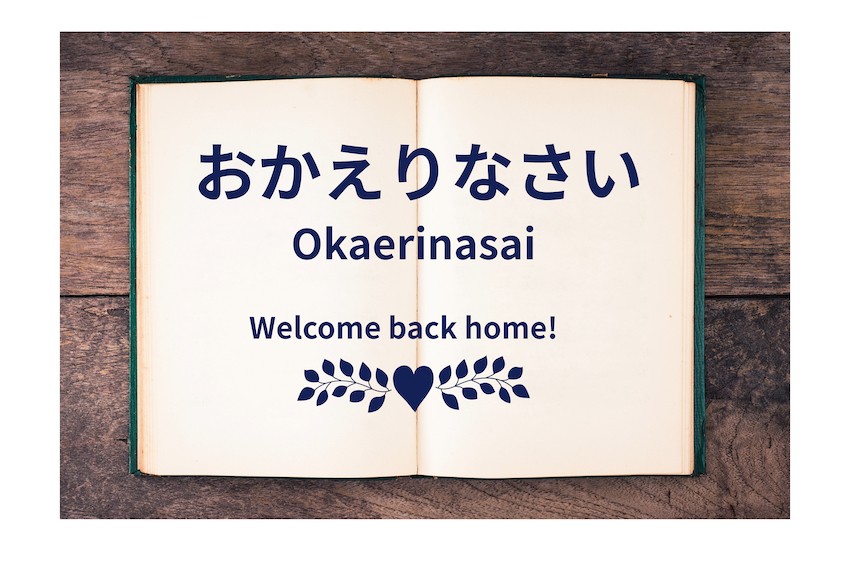
"おかえりなさい" (Okaeri nasai) is used as a response to the greeting "Tadaima". It is a word that expresses a welcome to the person who has returned home. When a family member or housemate says "Tadaima", the other family members or housemates who are at home respond with "Okaeri". This expresses a warm welcome to the person who has returned home, and conveys the warm atmosphere of the home.
Example sentences:
- おかえり!外は暑かったでしょう (Okaeri! Soto wa atsukatta deshou) - Welcome back! It must have been hot outside
- おかえりなさい。あ!今日は早いですね (Okaeri nasai. A! Kyou wa hayai desu ne) - Welcome home. Ah! You're early today
"Ittekimasu" - I'm going (to work/school)
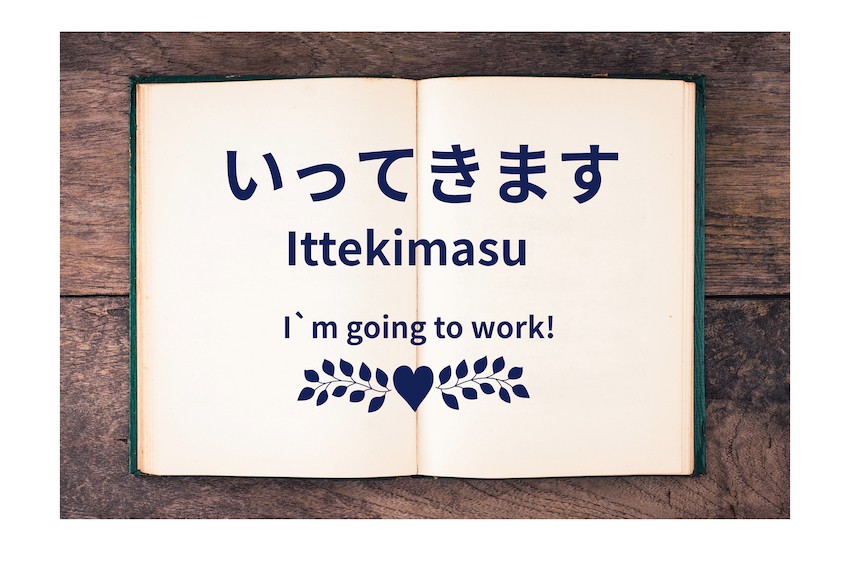
"いってきます" (Ittekimasu) & "いってらっしゃい" (Itterasshai) are Japanese expressions for the opposite situations of "Tadaima" and "Okaeri". Below, we explain the meaning and usage of each.
"いってきます" (Ittekimasu) is used when leaving the house. The person going out says this to their family or housemates before leaving home.
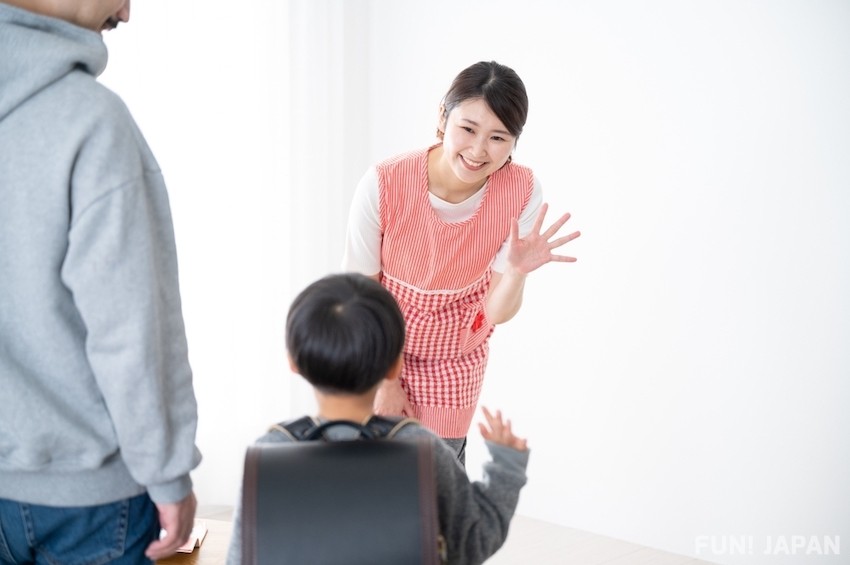
Example sentence:
- 学校にいってきます! (Gakkou ni ittekimasu!) - I'm going to school!
"Itterasshai" - Take care
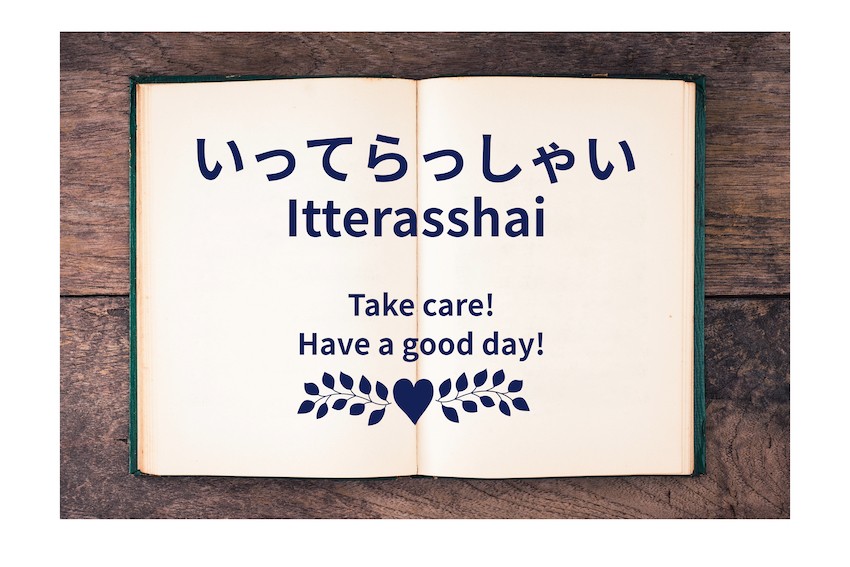
"いってらっしゃい" (Itterasshai) is used as a response to "Ittekimasu".
Example sentence:
- いってらっしゃい、気をつけてくださいね!(Itterasshai, ki wo tsukete kudasai ne!) - Take care on your way!
Would you like to master all these phrases and try speaking to Japanese people?
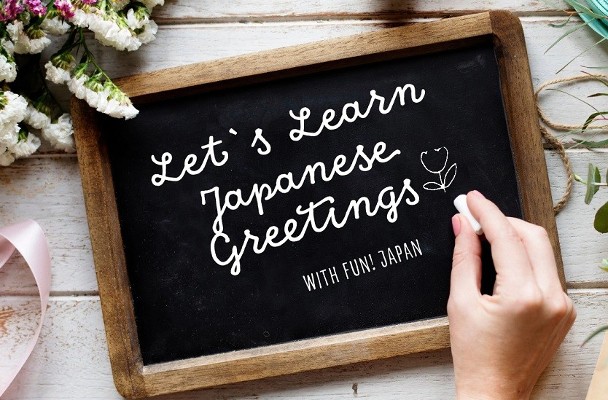
Comments